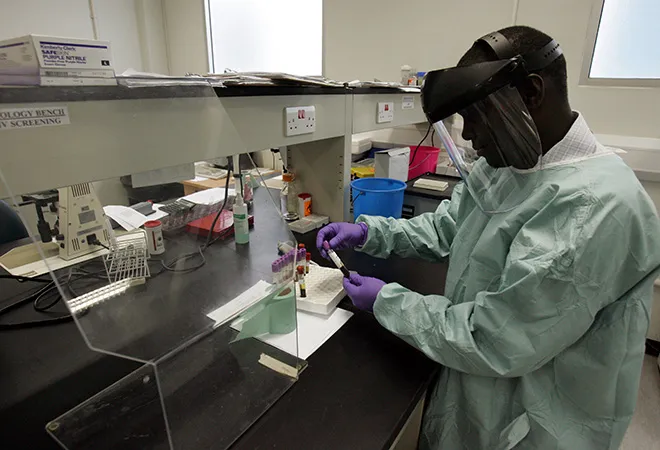
Uganda is one among a steadily increasing number of countries across the world that have reported cases of people infected with the coronavirus, as on 25 March 2020. To-date, the official number of those who have tested positive in Uganda is 14. The challenges that this East African country faces are enormous, considering the fact that her 42 million people do not have access to a strong healthcare system which could handle the brewing crisis, if the numbers of the infected increases. This will inevitably hit Uganda’s poor and the vulnerable people the hardest — according to the World Bank’s 2016 Poverty Assessment, 19.7% of the population was living below the national poverty line in 2013.
The costs, however, are daunting — most of Uganda’s population resides in crowded cities and cannot work from home.
The government has moved quickly to shut down all schools, bars, churches and mosques as an attempt to stem the outbreak. It has also suspended sports’ events, closed all entry through border points and suspended all flights except UN flights and those carrying cargo. However, it seems that the government will not be able to make much headway until a total lockdown is imposed. The costs, however, are daunting — most of Uganda’s population resides in crowded cities and cannot work from home. The closure of public transport and restrictions on public movement has already created much trouble for the masses, since most people do not own a vehicle and rely on public transport to get to work. This has greatly affected work output and earnings for many workers, who rely on daily earnings to procure food and other basic necessities for themselves and their families. Panic shopping for basic necessities has already caused food prices to shoot up by 10-20 percent, despite a presidential directive to suspend the licenses of traders who raise prices on food items. The government has not come up with any fiscal relief package so far to alleviate the financial distress gripping the nation. Businesses worry that a total lockdown, if imposed, will present a massive economic challenge and could have reverberations equal to those caused by the spread of the virus itself.
Until this pandemic occurred, the population had been relatively apathetic with regard to the workings of the government and its initiatives. Now however, most Ugandan citizens are glued to their television sets and radios in order to have access to first-hand information on new cases and measures that the government is instituting to stop the spread of the coronavirus. The government has expended considerable effort to contain the virus, focusing on spreading awareness and urging citizens to wash hands, even ensuring the installation of hand-washing points at all public spaces like markets and bus stops, etc. However, the fact remains that there are a great number of people in the country that do not even have access to clean running water and cannot easily adhere to this directive, even when aware of the risk posed by the virus. People living in single-room dwellings can hardly be expected to socially distance.
The government of Uganda has demonstrated proactive leadership during this crisis — keeping the lines of communication open and regularly addressing the nation with respect to the pandemic.
This pandemic has also laid bare the vulnerabilities of the country’s healthcare system. Hospitals lack protective gear and at present, there is only testing centre available for the entire country so all cases have to be sent there. Uganda has only 55 intensive care unit beds for its population of 42 million and only the capital city’s hospitals are equipped to treat coronavirus patients.
The government of Uganda has demonstrated proactive leadership during this crisis — keeping the lines of communication open and regularly addressing the nation with respect to the pandemic. It also sealed borders relatively quickly as compared to its neighbours, and has gone on record to condemn some countries for allegedly keeping the international community in darkness over the correct numbers of infected cases found in their territory, thereby putting others at risk. It has alleged that international flights coming in from some countries that were not placed on high-risk lists, were responsible for most of the cases that have been reported in Uganda.
This crisis shall test Uganda’s resilience further yet, and its government must prepare itself for the long haul. And as the world shall seek to emerge from this crisis, the real question for Ugandans to ask is: what lessons will the nation learn from this crisis. Will public health finally become more of a priority for the government and receive a greater share of the national budget? Will the government work to create decent livelihood opportunities and platforms for all its citizens and provide them basic social security so that they are more resilient in the face of crises such as these? Only time will tell which countries are able to get back on their feet and which ones learn their lessons, and whether our Uganda will be one of them.
The views expressed above belong to the author(s). ORF research and analyses now available on Telegram! Click here to access our curated content — blogs, longforms and interviews.




 PREV
PREV

